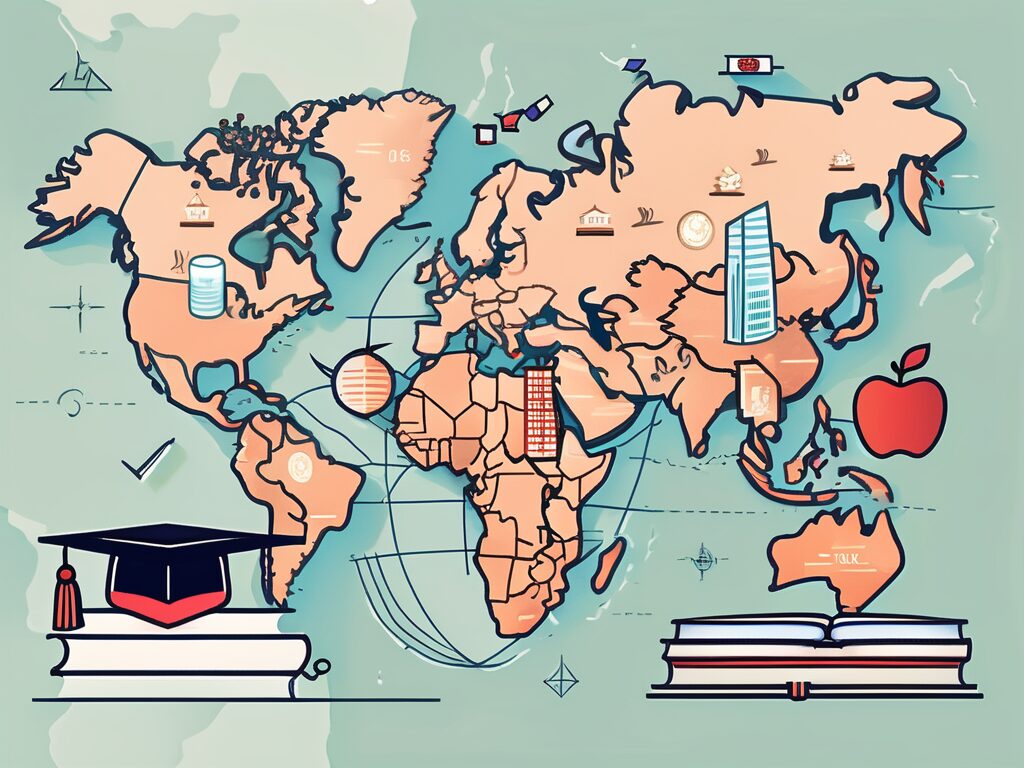html
Explore Global Education Systems: Insights by Continent
Education is a fundamental pillar of society, shaping the future of individuals and communities alike. As we navigate an increasingly interconnected world, understanding the diverse education systems across continents becomes essential. This blog post aims to explore the unique characteristics, challenges, and innovations of education systems worldwide, providing valuable insights for educators, policymakers, and anyone interested in the global landscape of education.
The Importance of Understanding Global Education Systems
In a globalised world, the exchange of ideas and practices in education is more critical than ever. By examining different education systems, we can identify best practices, learn from successes and failures, and ultimately improve our own educational frameworks. This exploration not only enhances our understanding of various pedagogical approaches but also fosters collaboration and innovation across borders.
North America: A Diverse Educational Landscape
North America, particularly the United States and Canada, showcases a diverse range of educational practices. The U.S. education system is characterised by its decentralised structure, where states have significant control over curricula and standards. This leads to a variety of educational experiences, with some states excelling in STEM education while others focus on the arts and humanities.
In contrast, Canada’s education system is known for its inclusivity and emphasis on equity. With a strong commitment to multicultural education, Canadian schools strive to accommodate students from diverse backgrounds. According to a report by the Organisation for Economic Co-operation and Development (OECD), Canada consistently ranks high in global education assessments, highlighting the effectiveness of its approach.
Europe: A Blend of Tradition and Innovation
Europe presents a fascinating tapestry of education systems, each with its own historical context and cultural influences. Countries like Finland are renowned for their innovative approaches, prioritising student well-being and creativity over standardised testing. The Finnish model emphasises equal opportunities for all students, resulting in high levels of student satisfaction and academic achievement.
Conversely, countries such as Germany maintain a more traditional education system, with a strong focus on vocational training. The dual education system in Germany combines classroom learning with practical experience, preparing students for the workforce effectively. This model has garnered attention worldwide as a potential solution to youth unemployment.
Asia: Rapid Growth and Technological Integration
Asia is home to some of the fastest-growing education systems globally, particularly in countries like China and Singapore. The Chinese education system is characterised by its rigorous academic standards and high-stakes testing, which has led to impressive results in international assessments. However, this pressure has raised concerns about student well-being and mental health.
On the other hand, Singapore’s education system is often lauded for its focus on critical thinking and problem-solving skills. The country’s commitment to continuous improvement and innovation in education has resulted in consistently high rankings in global assessments. The integration of technology in Singaporean classrooms has also set a benchmark for other nations.
Africa: Overcoming Challenges and Embracing Opportunities
Africa faces unique challenges in its education systems, including limited resources, infrastructure deficits, and socio-economic barriers. However, many countries are making significant strides towards improving access to quality education. For instance, initiatives like the African Union’s Agenda 2063 aim to promote inclusive and equitable education across the continent.
Countries such as Rwanda have made remarkable progress in recent years, focusing on gender equality and increasing enrolment rates. The Rwandan government has implemented policies to ensure that girls have equal access to education, resulting in a significant increase in female students in secondary and higher education.
Oceania: Emphasising Indigenous Education
In Oceania, particularly in Australia and New Zealand, there is a growing recognition of the importance of indigenous education. Both countries are working to incorporate indigenous perspectives and knowledge into their curricula, fostering a more inclusive educational environment. This approach not only benefits indigenous students but also enriches the learning experience for all students.
Australia’s National Aboriginal and Torres Strait Islander Education Strategy aims to close the gap in educational outcomes between indigenous and non-indigenous students. By promoting culturally responsive teaching practices, Australia is paving the way for a more equitable education system.
Key Takeaways from Global Education Systems
As we explore the various education systems across continents, several key themes emerge:
- Inclusivity: Many successful education systems prioritise inclusivity, ensuring that all students have access to quality education regardless of their background.
- Innovation: Countries that embrace innovative teaching methods and integrate technology into their classrooms tend to achieve better educational outcomes.
- Collaboration: The exchange of ideas and practices between countries can lead to significant improvements in education systems worldwide.
Internal Linking Suggestions
For further reading on related topics, consider exploring the following articles:
- Inclusive Education Practices: A Global Perspective
- The Role of Technology in Modern Education
- The Importance of Teacher Training in Global Education
Conclusion
Understanding global education systems provides valuable insights that can inform our approaches to teaching and learning. By learning from the successes and challenges of different countries, we can work towards creating a more effective and inclusive education system for all. As we strive for a more inclusive education system in Malaysia, the role of qualified and well-trained educators becomes increasingly crucial.
Empower Your Teaching Career with IPGCE
IPGCE is dedicated to supporting teachers in their professional journey, offering the International Postgraduate Certificate in Education (iPGCE) to enhance qualifications and open doors to international teaching opportunities. With our program, you can expect a significant increase in interview callbacks, promotion rates, and salary. Plus, you’ll join a global network of educators, gain a deeper understanding of international curricula, and enjoy the flexibility of online study. Don’t let inadequate credentials or isolation hold you back. Join the UK’s #1 Teacher Training Course today and take a decisive step towards a fulfilling career in inclusive education.

